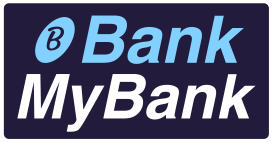Banking is an extremely intimidating task for a newcomer to a country. Despite being a nation founded on immigrants, the United States can make it difficult for both documented and undocumented immigrants to succeed. Fortunately, immigrants—including those without documents—have many of the same banking privileges as American citizens.
KEY TAKEAWAYS
Many immigrants are leery of financial systems depending on their culture or country of origin.
A safe and affordable place to store and access money in the United States is a bank.
Establishing bank accounts now may open up prospects for you later.
It is forbidden to discriminate in lending based on national origin.
Bank accounts can be opened by undocumented immigrants.
Banking Barriers and Cultural Diversity
If you bank with a large bank, they may not have a good reputation in your culture. You might not feel comfortable storing your money in banks in your country if they are not secure.
Read More: Different types of Depository and Examples
CULTURAL BARRIERS TO BANKING
Since they are frightened or worried about their legal status, many immigrants in my community use alternative banking and savings options to establish banks in the United States. One such choice is a sou-sou [club], where a number of people pool their resources to create a pooled savings account from which they all take turns withdrawing money based on the rules that the group decided upon.
Thankfully, the Federal Deposit Insurance Corp. (FDIC) covers deposits of up to $250,000 per account at member banks in the United States. This implies that if you decide to bank at an FDIC-insured location, up to $250,000 of your money is covered and will be paid out to you even if the bank fails, burns down, or the region you are in suffers from a natural disaster or civil disturbance. Be sure the bank you select is FDIC-insured while searching for one (or, if you choose a credit union, insured by the National Credit Union Administration [NCUA]).
The Federal Deposit Insurance Corp. (FDIC), which provides up to $250,000 in deposit insurance per account at member banks, is fortunately present in the United States. As a result, if you decide to open an account at a financial institution that is FDIC-insured, up to $250,000 of your money is covered and will be paid to you even if the bank fails, burns down, or your neighborhood suffers from a natural disaster or civil disturbance. When looking for a bank, make sure to confirm the bank’s FDIC insurance (or, if you choose a credit union, whether it is insured by the National Credit Union Administration [NCUA]).
By avoiding check cashing fees, prepaid debit card fees, and other costs, using banks in the U.S. allows you to access and spend your money more effectively. It can also help you get started on the path to developing credit. Having a banking history can help you get approved for loans like a mortgage or business loan in the future.
Also, keeping your money in a bank is more secure than other options.
If your money is in a bank, it cannot be stolen or lost in a fire, unlike if it is kept in cash. If it’s already safe in a friend’s or a sou-sou group’s possession, they can’t steal it or have it stolen from them.
Being a Documented Immigrant and Banking
Every bank and credit union has different documentation needs. Keep in mind that banks are not permitted to discriminate on the basis of national origin. They must follow the same documentation criteria for everyone in accordance with anti-discrimination regulations.
Yet, while making credit choices, lenders like banks may take into account your immigration status and whether you have the legal right to remain in the country for a sufficient amount of time to pay back any potential debt.
To open a bank account in the United States, you need a legitimate form of identification like a driver’s license, passport, or green card as well as an identification number like your Social Security number (SSN). Some banks can additionally want you to provide documentation of your address, such as a driver’s license, lease, or utility bill.
Being an Undocumented Immigrant, Banking
Undocumented immigrants do have financial privileges in the US and are able to create bank accounts, in contrast to popular belief and worries. Your immigration status should not be a topic of conversation with a bank.
To open an account, you must have a valid form of identification, such as a passport from another country or a MasterCard Consular card, as well as a Social Security number or an Individual Taxpayer Identification Number (ITIN). It might be challenging for undocumented immigrants to obtain a legitimate Social Security number, but applying for an ITIN is rather straightforward.
getting an ITIN
Individuals must complete the following and submit it to the Internal Revenue Service (IRS) in order to obtain an ITIN:
Complete Form W-7.
Provide a valid identity-verifying document that isn’t expired, like a passport from another country.
Provide proof of your affiliation with a foreign country, such as a passport, in the form of documents.
Finish filing your federal tax return.
Can illegal immigrants obtain credit cards?
Unauthorized immigrants can obtain credit cards, which will aid in their efforts to establish and build credit in the country. Yet, the Federal Trade Commission (FTC) asserts that creditors may approve or reject credit based on an applicant’s immigrant status.
Banks have the right to deny accounts to immigrants.
No, that is forbidden. Lenders are forbidden by federal law from treating borrowers differently based on their country of origin.
Read More: New Hyundai Creta Knight Edition priced at Rs 13.51L in India
Can banks impose additional fees on an immigrant’s account?
No, that is also prohibited. The age, marital status, country of origin, race, color, religion, sexual preference, or use of public assistance a person is not a factor in determining the fees or interest rates charged by a bank. Neither can the person’s sexual orientation or gender identity.
The Bottom Line
Banking increases prospects for the future while keeping the money more secure. Regardless of whether an immigrant has legal status, banks cannot reject their account applications or charge them more fees. Before approaching a lender, be aware of your rights, and if you believe they are being discriminatory, register a complaint.





